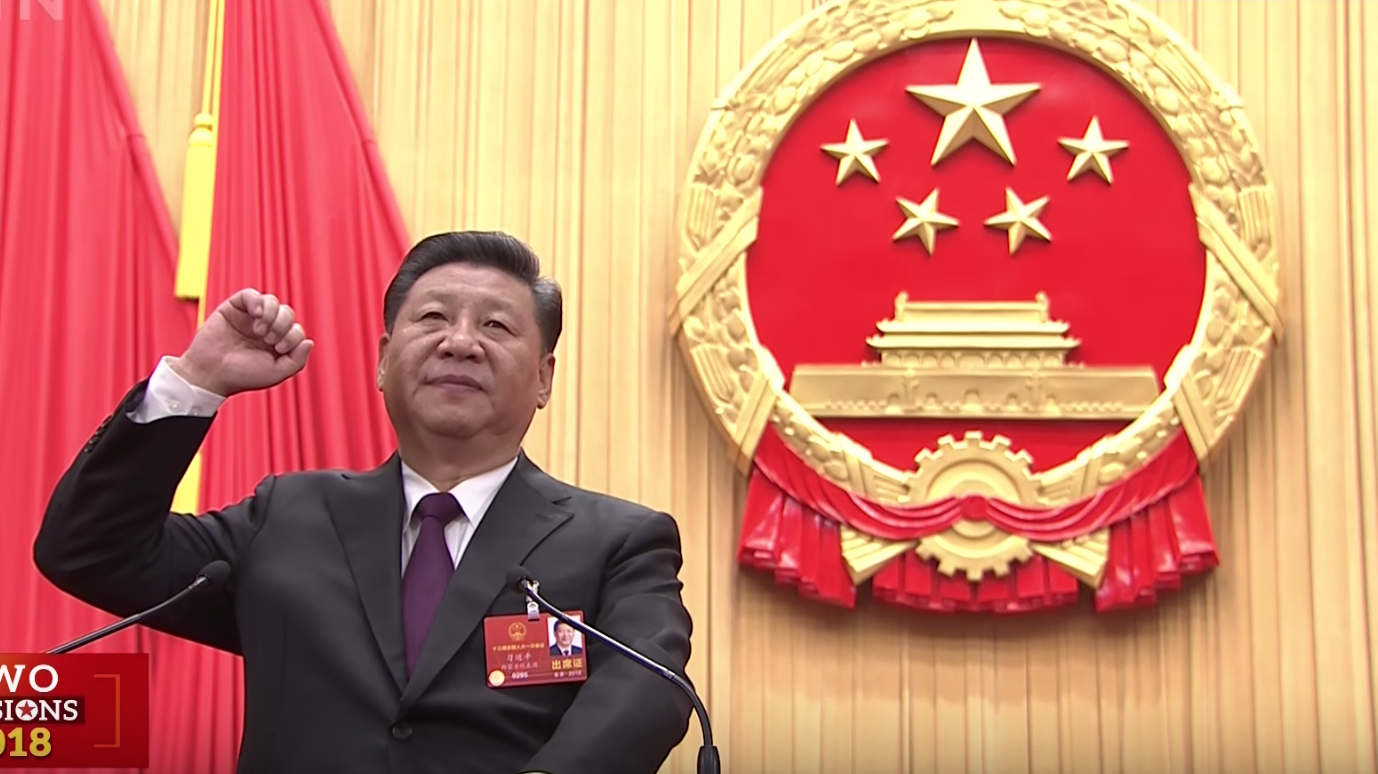Beijing is expanding its range of tactics to lure Taiwan into its orbit.
New policies
On Feb. 28, its Taiwan Affairs Office (TAO) announced 31 new policies designed to encourage greater integration between Taiwan and the mainland.
Despite mixed reactions at first, Taiwanese would find it hard to resist the sophisticated range of sweeteners, especially with a saturated job market and economic decline back home.
And if these "carrots" do not work, Beijing might resort to force to bring the island under its control.
Never ruled out use of force
Beijing considers the proudly democratic Taiwan to be one of its many provinces and has never ruled out the use of force to bring it under Chinese control.
However, analysts say there is no timetable for such a drastic move, at least not one that has been made public.
Taiwan's growing diplomatic isolation with China gaining in strength, both economically and militarily, means that it will only get harder for Taiwan to escape China's sphere of influence.
Beijing's "carrot and stick" approach
After passing historic constitutional amendments on March 11 to remove presidential term limits on the mainland, Beijing is now better placed to reinforce its "carrot and stick" approach in dealing with Taiwan's independence forces, according to Li Yihu, a senior mainland Taiwan affairs adviser who was cited in a South China Morning Post (SCMP) report.
Taiwan is a prominent issue on Xi's agenda.
Resolving it is seen as a major step in achieving his goal of "national rejuvenation".
Here is how Beijing plans to gradually lure Taiwan back into its orbit.
[related_story]
"Carrots"
In order to encourage more Taiwanese to do business on the mainland, Beijing has been using various economic sweeteners to appeal to them.
The new policy package that focuses on economic, cultural and educational aspects are said to give Taiwanese companies and individuals freer access to opportunities and benefits on the Chinese mainland.
They include offers of better paying jobs, access to larger markets, and equal treatment.
Furthermore, the Taiwanese can take a variety of professional and technical exams in the mainland. Taiwanese films, television programmes and books will also have better access to mainland markets.
These benefits are said to be "unprecedented", and are not even extended to Hong Kong and Macau citizens who are under the "one country, two systems" framework.
Such a move -- arguably the largest "carrot" offered to the Taiwanese so far -- bypasses the Taiwanese government currently led by pro-independence leader Tsai Ing-wen and communicates with the people directly, sending them a message that says:
"We'll take care of you".
It also indicates that Beijing is already thinking past the current pro-independence government in Taipei, and is expecting a more conciliatory one in the future.
"Sticks"
However, if the "carrots" fail to work, Beijing could then bring down its "stick", forcibly bringing the island under its control.
Beijing has stepped up military exercises focusing on Taiwan recently, sending fighter jets, surveillance planes and other aircraft capable of intelligence-gathering close to the island.
The drills indicate the Chinese military's growing capabilities and confidence.
But while some analysts say that Xi is unlikely to resort to military action to bring about unification -- at least in the near future -- others disagree, saying that unification is in the works.
Taiwan's diplomatic isolation
Although the Republic of China (ROC) was one of the four founding members of the United Nations since 1945 and a permanent member of the United Nations (UN) Security Council, it was expelled from the United Nations in 1971 when the government of the People's Republic of China (PRC) was recognised as the only legitimate representative of China to the UN.
Since ROC lost its seat, it was subsequently isolated from the international system, with only 20 countries recognising the ROC as the legitimate government of China as of March 2018.
And that number is seeing a slow but steady decline.
In December 2016, small West African state Sao Tome and Principe ditched Taipei for Beijing.
Later in 2017, Panama did the same, cutting long-standing diplomatic ties with Taipei in favour of establishing relations with Beijing.
Observers pointed out the irony that the United States (US) and other democratic countries cannot openly recognise fiercely liberal Taiwan or its achievements for fear of incurring Beijing's wrath.
Taiwan was also blocked from participating in the World Health Organisation (WHO) and other global aviation and policing organisations, allegedly under the influence of Beijing.
Beijing has used Tsai's refusal to recognise the 1992 Consensus -- the mutual agreement that there's only "one China", with different interpretations for both sides -- as the reason why Taiwan is unable to participate in the World Health Assembly.
The SARS epidemic of 2002-2003 exemplified the human cost of the political isolation of Taiwan by the WHO.
Researchers in Taiwan said they were hampered in their efforts to get valuable data on the virus from the WHO, while the virus continued to spread and patients in Taiwan died.
Top image adapted via New China TV/YT
If you like what you read, follow us on Facebook, Instagram, Twitter and Telegram to get the latest updates.
